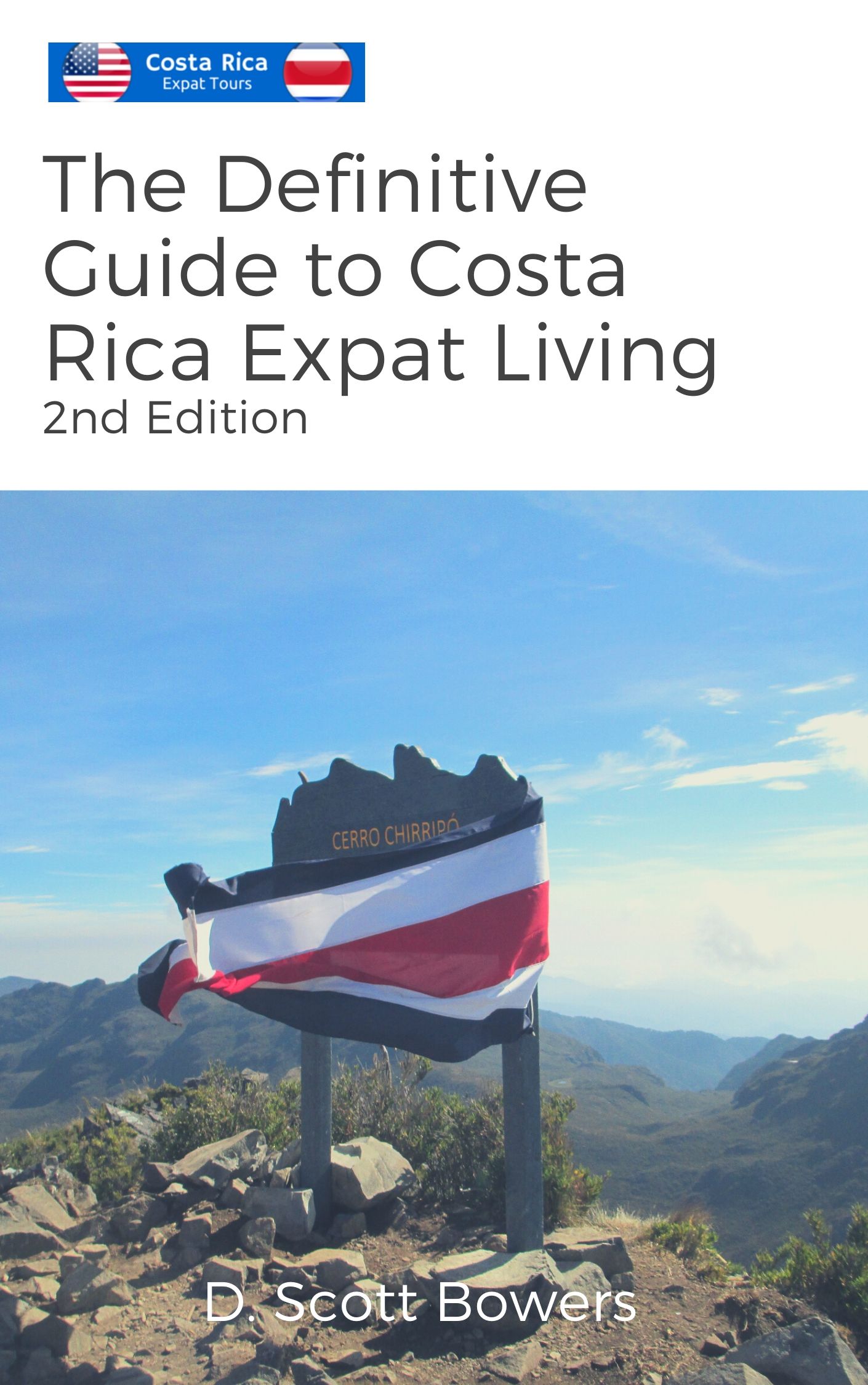Costa Rica Travel Tips and Useful Information
Money
Customers are always concerned about this one, but they shouldn’t be. To begin, it is NOT necessary to exchange all your money as soon as you arrive in Costa Rica. Also, do not change money in the airport as they offer the lowest exchange rate imaginable. The exchange rate changes every day, but in general it is 500 colones (the name of our currency) to 1 U.S. dollar. The bills are of 1,000, 2,000, 5,000, 10,000 and recently, 20,000 denomination. The exchange rate math is not difficult, even for me. What I usually recommend is that you change $100 or more (if you are a big spender) at the hotel (the most convenient location to exchange). You will only really need to use colones for paying things such as taxis, street vendors, small stores (we call them “pulperias”) and mom and pop restaurants (local name is a “soda”). Everything else can generally be paid in dollars, or with a credit card. Also, ATM’s (“cajeros”) are pretty common everywhere and almost always will accept an international card and provide bills in either local currency or dollars. So there, the money issue is solved. Now that wasn’t so painful was it?
Safety
Costa Rica is relatively safe. However, things happen. More often than not crime is of the stolen property variety. Violent crime is much more uncommon. While in San Jose especially be very cognizant of your surroundings, do not wear flashy jewelry on the busy streets, and keep your possessions always close at hand. I once heard a saying that you should “never temp a poor person.” I believe that is especially true when you are a “rich” gringo visiting “3rd World” country. Don’t leave stuff laying around unguarded because it will disappear. That goes for San Jose, or anywhere else for that matter. The adventurous types that insist on renting a car and doing a self drive (see our advice on this at our Transport Page) are especially vulnerable. The crooks know how to spot a rental car in a flash. We have had customers stop for lunch at a San Jose mall, only to return to the car and find all their possessions stolen. How to avoid? If there is someone available to watch your car while you are away from it, by all means take advantage. Most always parking lots will have such a person (we call them “guardas”). Be generous to tip him 500 colones ($1.00) when you leave. It is much better than continuing on with your trip without clothes.
Vaccinations
None are required. There have been sporadic cases of Dengue Fever in some areas of Costa Rica, but insect repellent is your best guard against that.
Drinking the Water
Water is generally safe to drink in Costa Rica unless otherwise specifically noted (with a sign reading “Agua No Potable”). If you’re like me, however, I prefer bottled water to tap, even in the good ole U.S.A. Bottle water is readily available everywhere.
Tipping
One of the delightful things about Costa Rica culture is that tips are generally not expected at every turn. In restaurants and bars you will notice an increase to the bill of 23%. 13% of that is our sales tax and the other 10% is a mandatory tip. No one ever expects to receive more than that. Tipping is “sort of” customary on tours where the guide is really good and you want to reward him for his exuberance. A modest tip of 2,000 or 5,000 colones ($4 or $10) will bring you a big smile of appreciation. Also, remember what was said above concerning the “guardas” if you are renting a car.
Speaking the Language
Not necessary as in the tourism industry you will find most speak English. However, all will appreciate and gladly help with your attempts at butchering the language. So, by all means give it a whirl. Side note: Costa Rica has a phrase that is unique only to this country and you will hear it and read it often. It is “Pura Vida” and can be used as a greeting, or salutation. Use it as a way to gain friends and influence people.
Clothing (What to Pack)
The following is an excerpt from the Useful Tips and Information document we will send you when you book with us. It was done by a former employee who tends a bit toward the anal-retentive side, but nevertheless very useful and informative…. Most of Costa Rica is truly only moderately tropical. Light weight clothing is advised, but long sleeves offer better protection from the sun and, when off the beaten path, against insects and foliage. A few pair of shorts, T‐shirts and at least one pair of long pants for horseback riding and or zip-lining, and for evening meals where insects might nibble on your ankles. You’ll need some light clothing but also one jacket, sweatshirt or light weight Polar fleece (best because it dries quickly) for warmth. A lot of Costa Rica is at high altitude (4000‐7000 ft,), and it can get into the low 50`s after dark. Use layers for warmth. Strong shoes that can get wet and dry quickly are best (strong tennis shoes/cross-trainers advised) since air drying may be nearly impossible between activities, bring at least 2 pair. Generally, strong tennis shoes are great for serious treks, zip lines and horseback riding. We additionally recommend closed toe sandals or tennis for canyoning or white‐water rafting. Raincoat: When it does rain, it is usually very warm, and serves well to wash away the sweat and mud you’ve accumulated today. A poncho is more versatile, because you can also sit on it, roll up wet clothes in it, and it also gives more breathing room to your arms, etc. For evening sandals, light casual clothing and at least a long sleeve lightweight shirt for warmth. Meals, even at the fanciest hotels, are very informal, so just be comfortable. It does get pretty cool in the evenings (middle 60`s) in the mountain areas, so don’t get caught with nothing to keep you warm. Long sleeve collared shirts for men in San José nicer restaurants is advisable. A more detailed package list is included in the aforementioned doc.
Entry Docs
For U.S. citizens only a passport is needed. Make sure it does not expire less then 3 months after your Costa Rica departure date. For citizens of other countries, you will have to check on the requirement. The best place is your airline where you plan to book your flight. They know.
Calling Home
Your cell phone probably will not work in Costa Rica unless you go to the carrier and make arrangements for it to work internationally. And calls that way will be very expensive. We generally recommend the purchase of an international calling card once you get to Costa Rica. They can be purchased at pharmacies, grocery stores, gift shops, etc. Then you can use the phones at the hotel or elsewhere to make the call and this way you will not get a shock when you receive the next phone bill back home.
Getting On Line
One of the rules at Package Costa Rica is that our customers are not allowed to use the Internet while in Costa Rica. Well, we will give you a little leeway since we have found it particularly difficult to enforce said rule. Internet Cafes are everywhere and your hotel will include Wi-Fi of some sort. So, if you must, go ahead, but we recommend surfing our great waves over the Internet variety.
What Happens When You Arrive?
Much to the chagrin of many of our more shy customers, we generally arrange a small ticker tape parade upon your exit from the airport. No really, we don’t do that (well we can if requested and for the right price). What will happen is that we will be there when you exit with a big grin and an even bigger sign with your name on it. Don’t worry, our track record is pretty good at locating our customers. Once we have you in custody, we will deposit that same sign into your hands, since it also doubles as your arrival package (see how efficient we are!). Inside you will find all sorts of goodies, most important of which are the “vouchers” which are your tickets for all the fun and frivolity included on your package design. Those also contain useful information like where to be and when. So don’t lose them!
Hope our Costa Rica travel tips page helps relieve some of your pre-arrival stress. Now you can resume your day-dreaming of tropical breezes, monkeys and sunsets.




